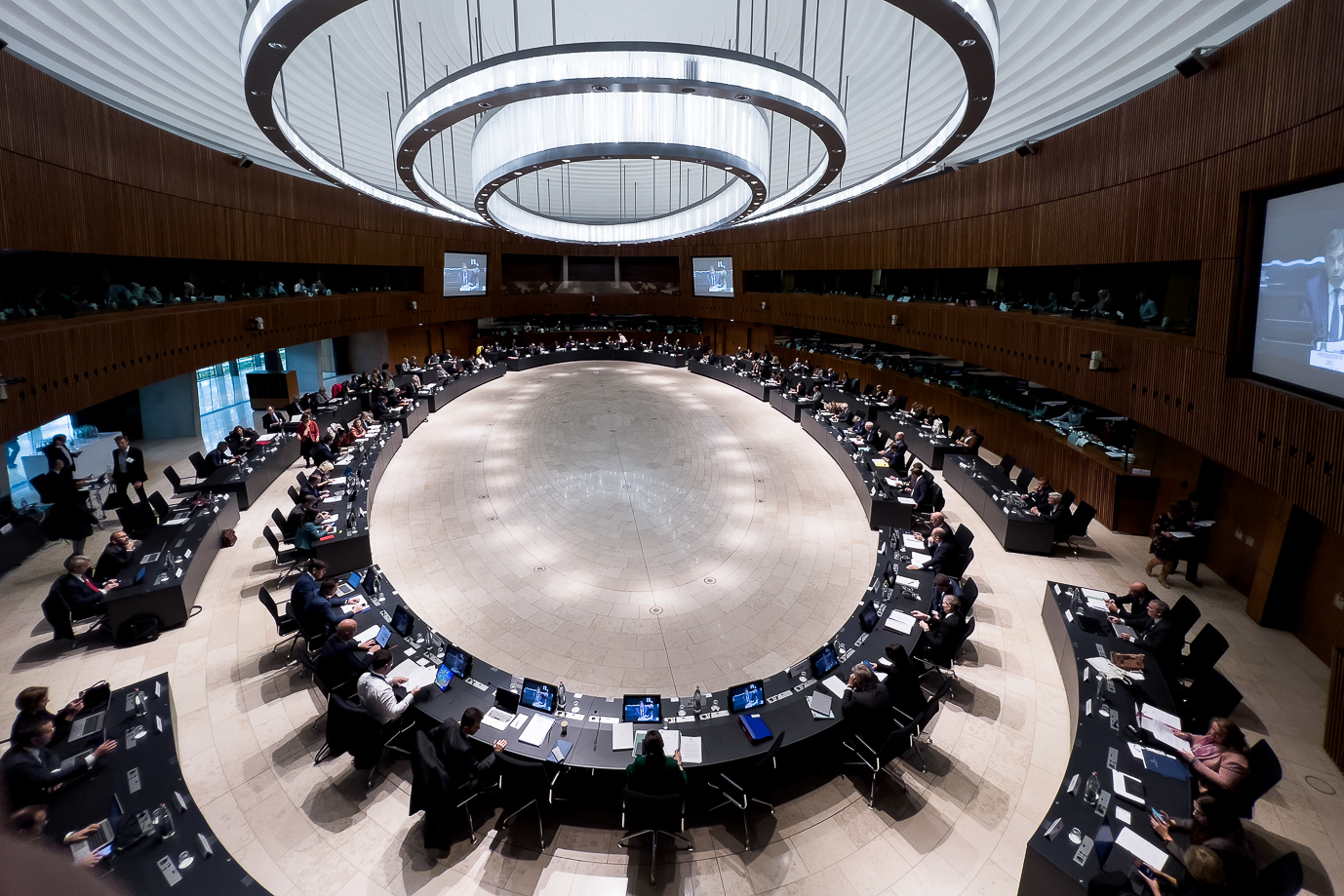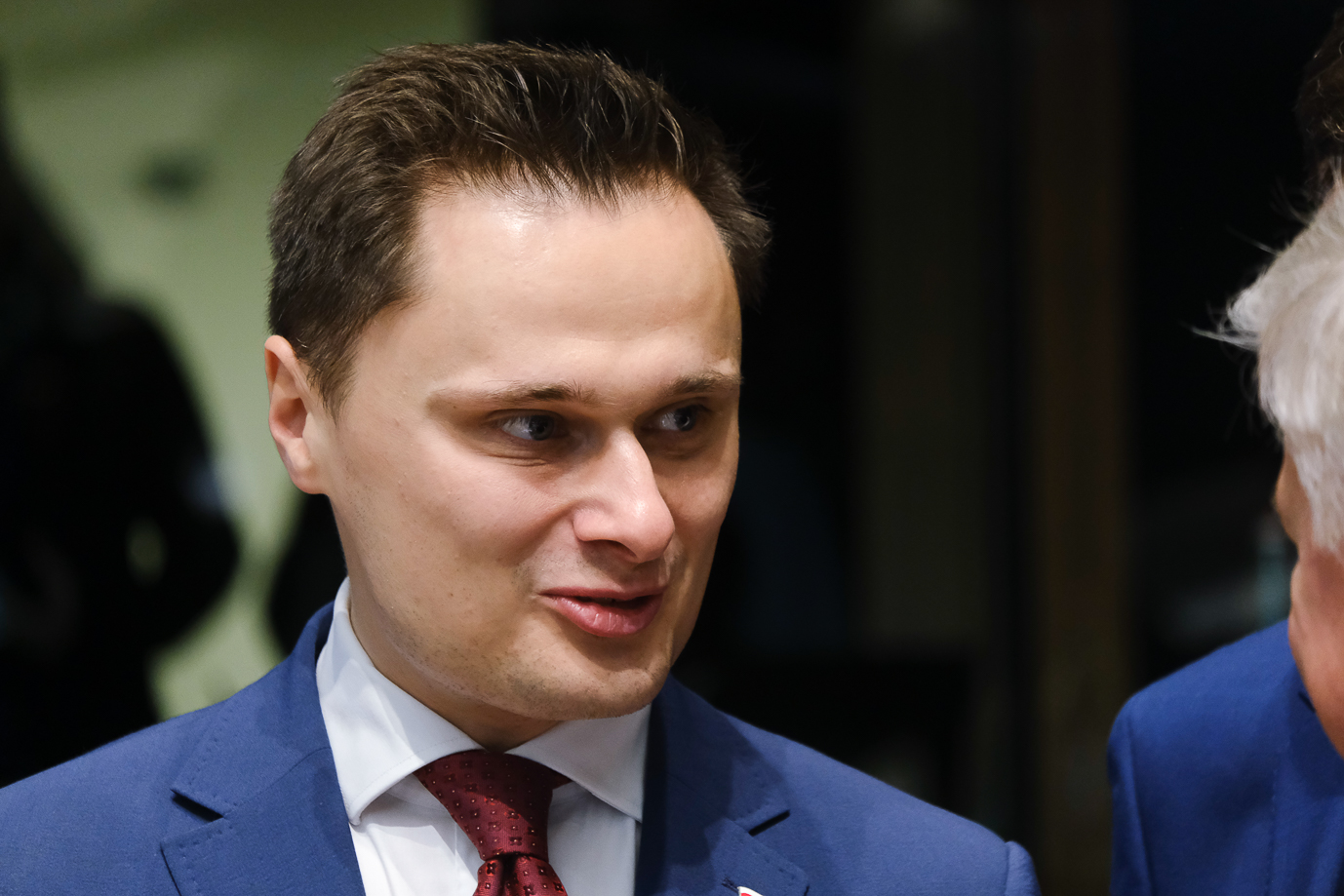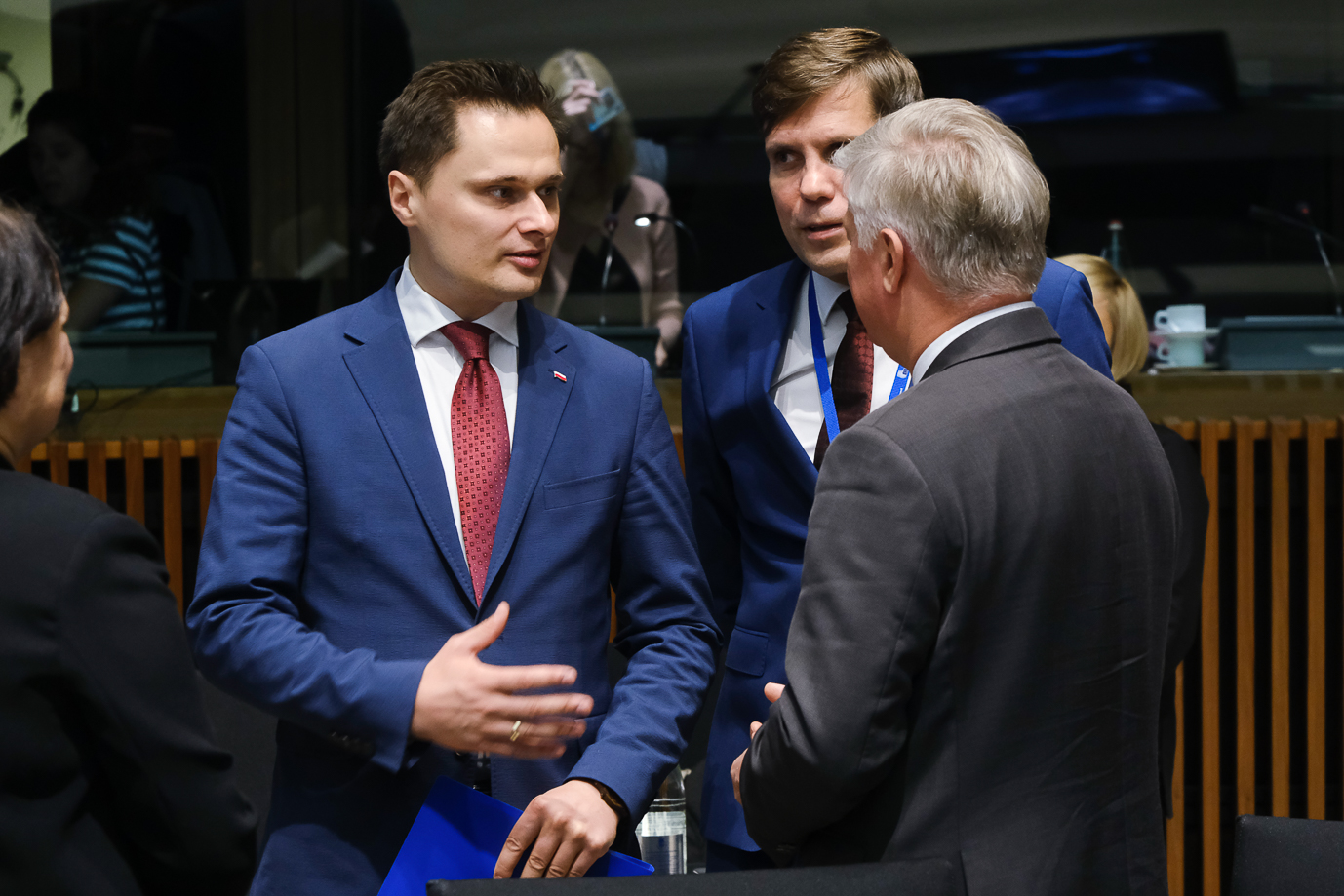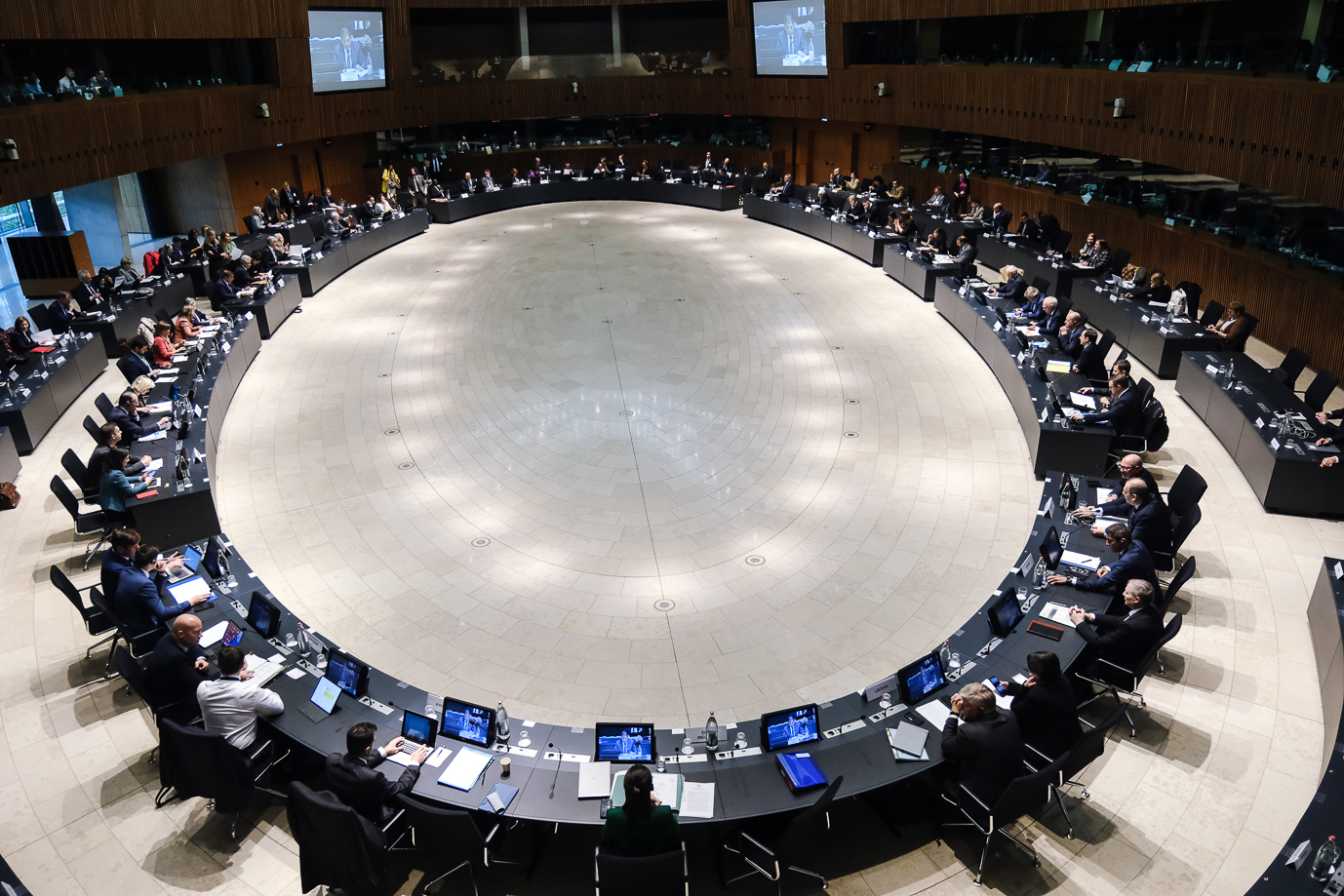The AGRIFISH Council in Luxembourg – agricultural matters
23.10.2023
On the first day of the meeting of the EU Agriculture and Fisheries (AGRIFISH) Council in Luxembourg, the Ministers discussed important matters related to agriculture. The Polish delegation was headed by Undersecretary of State Krzysztof Ciecióra.

Topics of the meeting
The most important topics of the meeting included: the situation on the agricultural markets, the Waste Framework Directive and the Regulation on the certification of carbon removals. At the meeting, Poland also presented information on the impact of the EU carbon market on the agricultural sector and the agri-food industry.
The situation on the agricultural markets
The Ministers of Agriculture discussed the most important issues related to the situation on the agricultural markets, especially those caused by Russia’s invasion of Ukraine. Mr. Mykola Solskyi, Minister of Agrarian Policy and Food of Ukraine, attended the meeting in person. He presented to the Member States an overview of recent developments in the Ukrainian agricultural sector and information on the exports of Ukrainian agricultural products to the EU.
In response to the statement from the Ukrainian Minister, the Presidency and the European Commission (EC) expressed their solidarity with Ukraine and their will to continue their assistance. The European Commission informed about the measures to improve the effectiveness of the solidarity lanes and, subsequently, to rebuild the Ukrainian economy and agriculture. The Commission also presented current information on the situation on the most important EU agricultural markets.
The position of Poland
Undersecretary of State Krzysztof Ciecióra stressed that large exports of agri-food products from Ukraine still continued to be a challenge and that they affected the supply and demand conditions in many branches of the EU agri-food sector.
“It affects primarily the frontline states and requires a search for further solutions to facilitate the exports of Ukrainian agri-food products without destabilising markets,” Deputy Minister Krzysztof Ciecióra said.
The head of the Polish delegation stressed that a ban in place on the imports of selected cereals and oil seeds from Ukraine to Poland was an effective factor stabilising the market situation. He added that this regulation did not create obstacles to the transit of Ukrainian products through Poland, which was confirmed by their increased transit in recent months.
Deputy Minister Krzysztof Ciecióra also noted the concerns of the poultry and sugar industries with the growing imports from Ukraine. He explained that in the period from June to September 2023 Ukraine banned sugar exports, but now this ban was lifted.
The Undersecretary of State pointed out that the war in Ukraine also significantly affected the production, sales, prices and storage of fruit and vegetables.
“Increased imports of cheap frozen raspberries from Ukraine was one of the factors which had an adverse impact on the Polish market of this processed food in the passing season,” the Deputy Minister added.
The Deputy Minister of Agriculture stressed the need to urgently launch a discussion on the development of systemic, long-term mechanisms at the European Union level.
“There is a need to build legal, financial and infrastructural tools which would enable stabilisation of markets, particularly in the conditions of the growing competition from imported products,” the Undersecretary of State said.
Referring to the tools set out in the Strategic Plans for the Common Agricultural Policy (CAP) which would make it possible to more flexibly respond to challenges, the Deputy Minister stressed that since the beginning of the work on the CAP reform Poland had proposed enhanced flexibility of the Member States to modify the Strategic Plans. The experiences from recent crises demonstrate that enhanced flexibility in respect of the Strategic Plans should be complemented by the improved effectiveness of the safety net. In the Deputy Minister’s opinion, it would also be important to improve the effectiveness of the use of the agricultural reserve.
Information from Poland on the impact of the EU carbon market on the agricultural sector and the agri-food industry
The topic was submitted for consideration at the meeting on Poland’s initiative. Undersecretary of State Krzysztof Ciecióra stressed that the emission charges in the ETS system had a substantial effect on energy prices and that these prices affected the production costs in a specific manner.
“This has an adverse effect on food prices, food security and the competitiveness of European food. High emission allowance prices reflected in energy prices are shifted, among others, onto companies of the food sector or producers of greenhouse vegetables. The costs of production inputs, such as mineral fertilizers, grow,” the Deputy Minister stressed.
The head of the Polish delegation reminded that the 2014 Council Conclusions provided that coherence between the EU objectives on food security and climate change should be ensured.
“The impact of this system on energy prices poses many threats to agricultural production and the agri-food industry. Therefore, we should discuss this issue among the EU Ministers of Agriculture,” the Polish Deputy Minister of Agriculture said.
The position of Poland was supported by the delegations of Hungary and Bulgaria, which pointed out that all the regulations concerning or affecting agriculture should be discussed at the AGRIFISH Council and that agriculture should not incur excessive costs related to EU climate policy.
Waste Framework Directive
The Ministers discussed the food-related aspects of the proposal amending the Waste Framework Directive which was published by the EC on 5 July 2023. The Ministers discussed the tools which would contribute to the greatest extent to achieving the objectives of the proposal to reduce and prevent food waste.
The position of Poland
Undersecretary of State Krzysztof Ciecióra stressed the need to take measures to really reduce the quantities of food waste and to manage it properly. Food waste generation is a complex problem which is not only environmental, but also social and economic. These aspects should be analysed when actions are designed.
Deputy Minister Krzysztof Ciecióra stressed that the achievement of the proposed food waste reduction levels was an ambitious challenge.
“There are serious doubts as to whether such a further substantial food waste reduction is possible until 2030, bearing in mind the actions taken and the results achieved to date. Poland has already taken actions to limit food waste generation,” the Undersecretary of State said.
Regulation on the certification of carbon removals
The Presidency provided the Ministers with updated information on the agricultural and forestry aspects of the Regulation on the certification of carbon removals.
The position of Poland
Undersecretary of State Krzysztof Ciecióra stressed that for Poland it was important for the certification rules to be simple and transparent, since this would enable a larger number of agricultural holdings to participate in the scheme.
“Farmers who would like to join the certification scheme can be discouraged by the excessively extensive documentation which needs to be prepared at the outset, the audit-related costs and to the so far unspecified mechanisms of liability for a possible release of the stored carbon. These are issues which require further work,” Deputy Minister Krzysztof Ciecióra noted.
The Undersecretary of State pointed out that an important aspect of the certification scheme was its coherence with the Common Agricultural Policy.
“In our opinion, there is a need to support the solutions which will make it possible to combine practices conducive to carbon removals and greenhouse gas reductions with the support offered as part of the CAP,” the head of the Polish delegation said.
A new Deal for Farmers – the challenges for the EU farming sector
The Austrian delegation presented the information “A new Deal for Farmers – how to tackle the current challenges for the EU farming sector”. It pointed out high production costs, high inflation, extreme weather events and the present geopolitical situation. Subsequently, it addressed the actions to stabilise the agricultural markets and the need to take into account all the three dimensions of sustainability in law-making.
The position of Poland
Undersecretary of State Krzysztof Ciecióra informed that Poland concurred with the Austrian position that the growing costs of agricultural production in the EU and stricter EU requirements, including the environmental ones, too, contributed to a deterioration of the competitiveness of agricultural production in the EU.
“The deterioration of competitiveness is also caused by lower prices of agricultural commodities, among others, as a result of excessive imports from Ukraine. A significant part of Ukrainian agricultural exports remains in the EU Member States bordering on Ukraine and is not transported further, including primarily to the countries struggling with a shortage of agricultural products. This poses a threat to global food security,” Deputy Minister Krzysztof Ciecióra reminded.
The head of the Polish delegation informed that Poland supported any initiatives to increase the capacity for the transit of Ukrainian agricultural commodities and the introduction of mechanisms which could effectively protect the markets of the Member States against excessive imports of cheaper products from Ukraine. He pointed out that Poland had proposed the introduction of such mechanisms already on the occasion of the discussion on tariff liberalisation for imports from Ukraine and supported the Austrian initiative in this respect.
Referring to the issue of the impact of agriculture on the climate and environment, Deputy Minister Krzysztof Ciecióra stressed that Poland had repeatedly emphasised that the implementation of the European Green Deal was a large socioeconomic challenge for our country and the EU as a whole. This also applies to the agricultural sector.
“We believe that the requirements imposed on agriculture should be set in a manner which does not pose a threat to European food production,” the Deputy Minister stated.
The head of the Polish delegation concurred with Austria’s opinion on the need to launch a comprehensive assessment of the legislation resulting from the European Green Deal and its impact on the EU agriculture.





